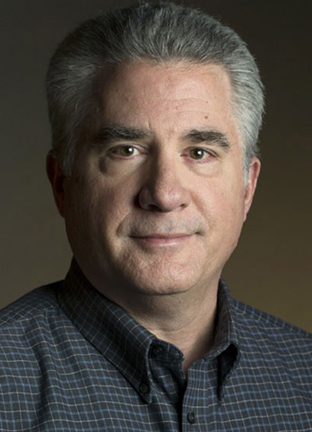
RICHMOND, Va. (BP) — The new year had barely begun when the usual round of bad news resumed: terror attacks, atrocities, massacres, war.
Some folks respond to the ugliness of world events by ignoring them, trying to create their own safe little world. Sooner or later, however, reality intrudes. Bills. Unexpected illness. Family problems. Job struggles. Life.
Even life’s pleasures become burdens if we depend on them for happiness. We can’t control our lives, but we never stop trying. It’s human nature, a manifestation of our need for security — and our endless temptation to usurp God’s role in decision-making.
Christians can be as guilty as anyone of playing God. We dream up brilliant ministry plans and ask God to bless them. Then we consult our goals and action plans more often than we seek direction in Scripture. Doing something, anything, is easier than praying and waiting for God’s voice.
Our tendency, IMB President David Platt observes, “is to miss Christ in the middle of mission, to get so consumed in what we are doing for Him that we miss out on intimacy with Him.”
There’s a better way.
As his first full year of IMB leadership gears up, Platt is asking missionaries and staff — and anyone else interested in making the most of each brief, precious day of 2015 — to renew their commitment to seeking God’s direction.
“Life in this world doesn’t last very long,” Platt says. “When we realize this, it changes the way we live. It’s in this light that I want to implore you in the beginning of this year to stop and think: What does it mean to trust in God when I’m not guaranteed tomorrow?” (Listen to Platt’s podcast on the topic here. Subscribe to his ongoing podcast through iTunes here or download audio files here.)
The apostle James addressed the issue when he rebuked early believers for making their own plans: “Come now, you who say, ‘Today or tomorrow we will go to such and such a city, and spend a year there and engage in business and make a profit.’ Yet you do not know what your life will be like tomorrow. You are just a vapor that appears for a little while and then vanishes away. Instead, you ought to say, ‘If the Lord wills, we will live and also do this or that.’ But as it is, you boast in your arrogance; all such boasting is evil. Therefore, to one who knows the right thing to do and does not do it, to him it is sin” (James 4:13-17 NASB).
Platt draws two basic truths from James’ words when it comes to setting priorities:
Faith is humbly submissive to the sovereignty of God.
“We can become so consumed with the material realm, so consumed thinking about our plans and our strategies, [that] we become blind to spiritual realities,” Platt says. “The problem is not planning in and of itself. The problem is planning in such a way that God has no place in the plans.”
James by no means counsels “passive fatalism” or sitting back and doing nothing until God acts, Platt emphasizes. The book of James is all about action: Its 108 verses contain more than 50 imperative commands.
“James is talking about activity and action the whole book,” Platt says. “But he’s talking about activity and action that are humbly submissive to the sovereign God of the universe, knowing that every accomplishment, every activity, literally every breath occurs only by the sovereign grace of God. … The key is a mindset that says, ‘I need the grace of God, and I am dependent on the will of God in every facet of my life.’
“This is a radically different way to live in the world — particularly in the busyness and the business of our lives,” Platt notes.
“[S]pend your life humbly submissive to the sovereignty of God, and ultimately live for the glory of God,” he counsels. “Make your life — this mist that comprises who you are for the short time you are here — count. Be finished with self-sufficiency. Live your life in radical God-dependency.”
Humble submission to God’s sovereignty leads to wholehearted submission to God’s will.
Sin isn’t just lying, coveting and other evil acts on a long list of don’ts. We sin when we fail to do what God has clearly told us to do: Live holy lives, love others as ourselves and make disciples in our circle of personal relationships and among all nations.
Platt: “Holiness includes what we do in this world, how we obey in this world, so we’ve got to think, ‘What has God said to do today? He has given me today. He’s given me breath. He’s given me life. He’s given me sustenance. What has He told me to do with it?’ That’s a good question with which to approach today and this next year. If the Lord wills to give you an entire year in 2015, make the most of that mist which is here today and will be gone before you know it.”
That’s the approach Platt is taking this year — not only in his own life but in planning and strategizing with Southern Baptist missionaries and mission leaders in their global Gospel enterprise.
Rather than recycling a stale set of New Year’s resolutions, why not consider it for your own life?
















